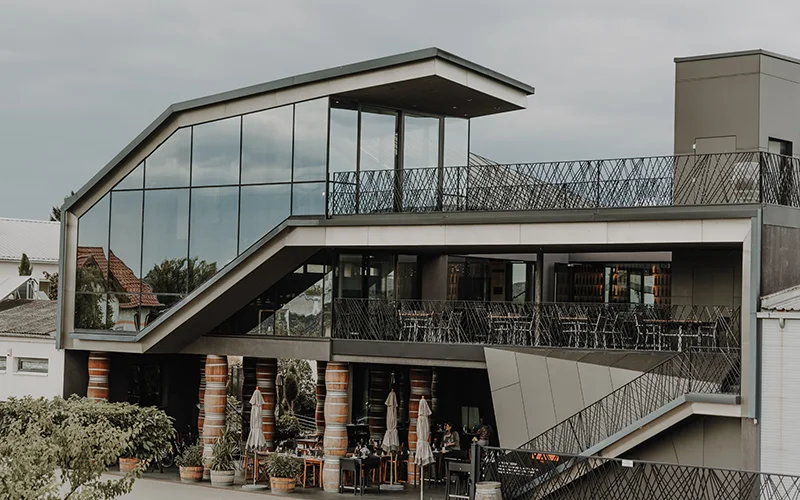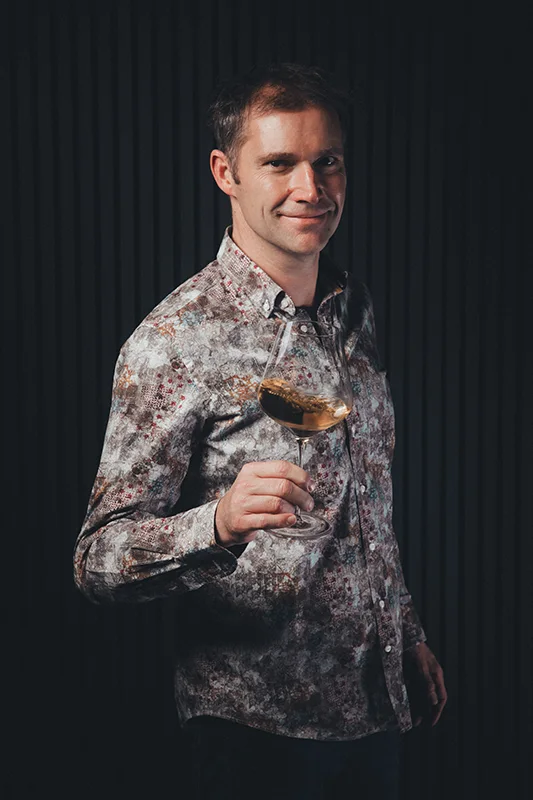The interview shows how sustainable solutions work in practice – and why partnerships between agriculture, research and innovative companies are paving the way to a climate-friendly future.
Sustainable innovations are the key to the future of viticulture
Erich Scheiblhofer in conversation with ROCKETS
ROCKETS: Mr. Scheiblhofer, you run an internationally renowned winery in Burgenland. How do you specifically feel the effects of climate change in your vineyards?
Erich Scheiblhofer: The changes cannot be overlooked. We have hotter summers, longer dry periods and increasingly frequent extreme weather events. This means more stress for the vines and forces us to develop new strategies – from irrigation to soil management.
ROCKETS: You worked together with Green Legacy to re-inoculate your vines. How did this cooperation come about?
Scheiblhofer: The contact came about through a joint research project with the Burgenland University of Applied Sciences, which deals with innovative methods for increasing drought resilience and water efficiency in viticulture. In this context, we got to know Green Legacy and decided to use their water-storing granules in the course of a post-inoculation – an exciting and resource-saving approach.
Instead of uprooting old vines, we treat them specifically during soil cultivation. The granules ensure that the plants are constantly supplied with water, even during longer dry periods. The results are very positive: we see more vital vines – especially in dry years.
ROCKETS: What other experiences have you had with the use of Polygrain or other Green Legacy products?
Scheiblhofer: We clearly notice that the soil retains moisture for longer. The vines develop more evenly and show significantly more resilience, even under heat stress. That is a real advantage in a wine-growing region like ours.
ROCKETS: How can the product be used in practice? Does its use involve additional effort?
Scheiblhofer: No – it can be integrated very well into our existing processes. When retreating existing vineyards or planting new ones, the granulate is applied mechanically and very precisely directly into the root area. It then works reliably in the soil for several years – without any further effort.
ROCKETS: Agriculture must be economically viable. How do you assess the cost-benefit ratio?
Scheiblhofer: It pays off. Thanks to the higher success rate, we save costs for replanting – and at the same time ensure the quality of our wines. It also helps us to use water more efficiently, which is becoming an increasingly important factor for the future.
ROCKETS: And finally: What opportunities do you see for the entire region?
Scheiblhofer: Such technologies can make viticulture in the entire region more sustainable. If more businesses use such solutions, together we will strengthen the climate fitness of viticulture – not just for today, but for generations to come.
Pictures: Winery Scheiblhofer


